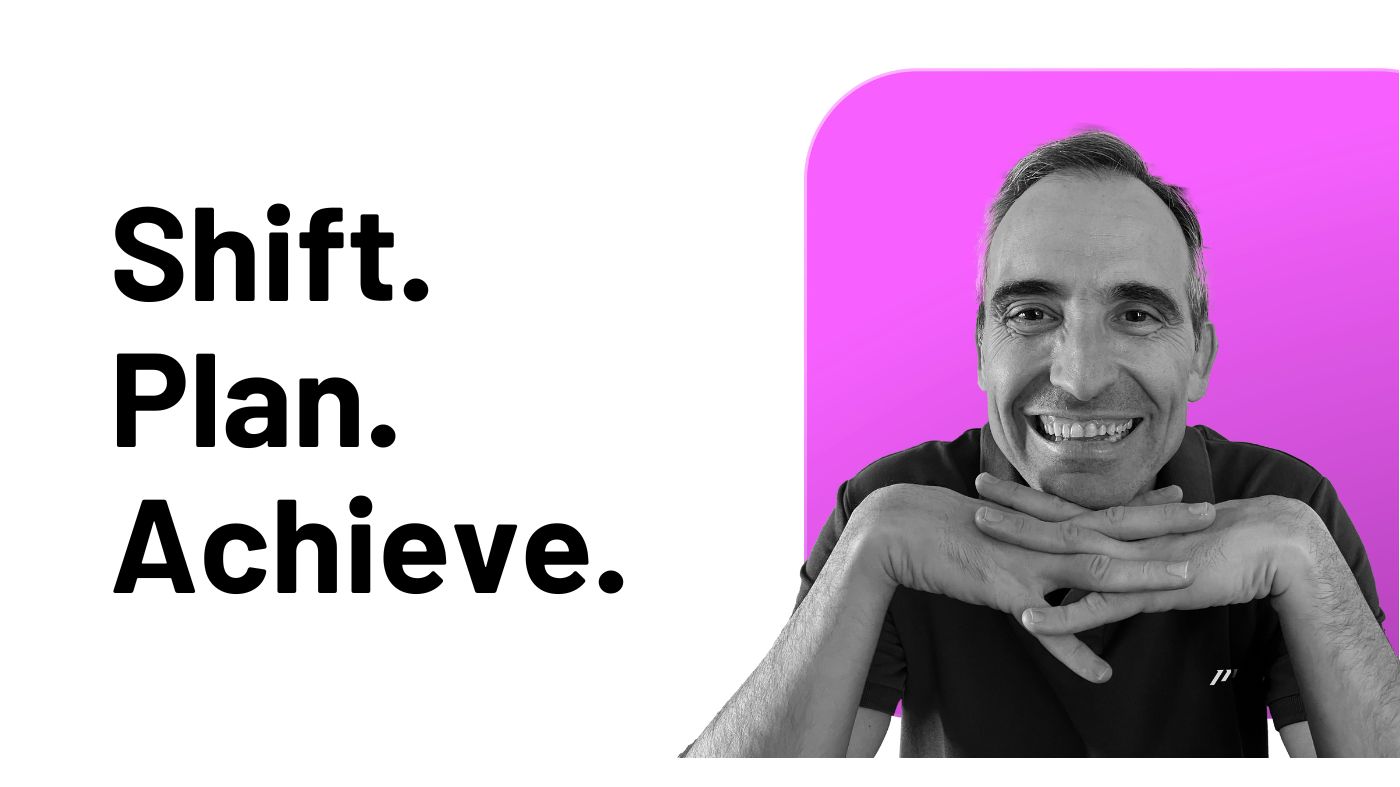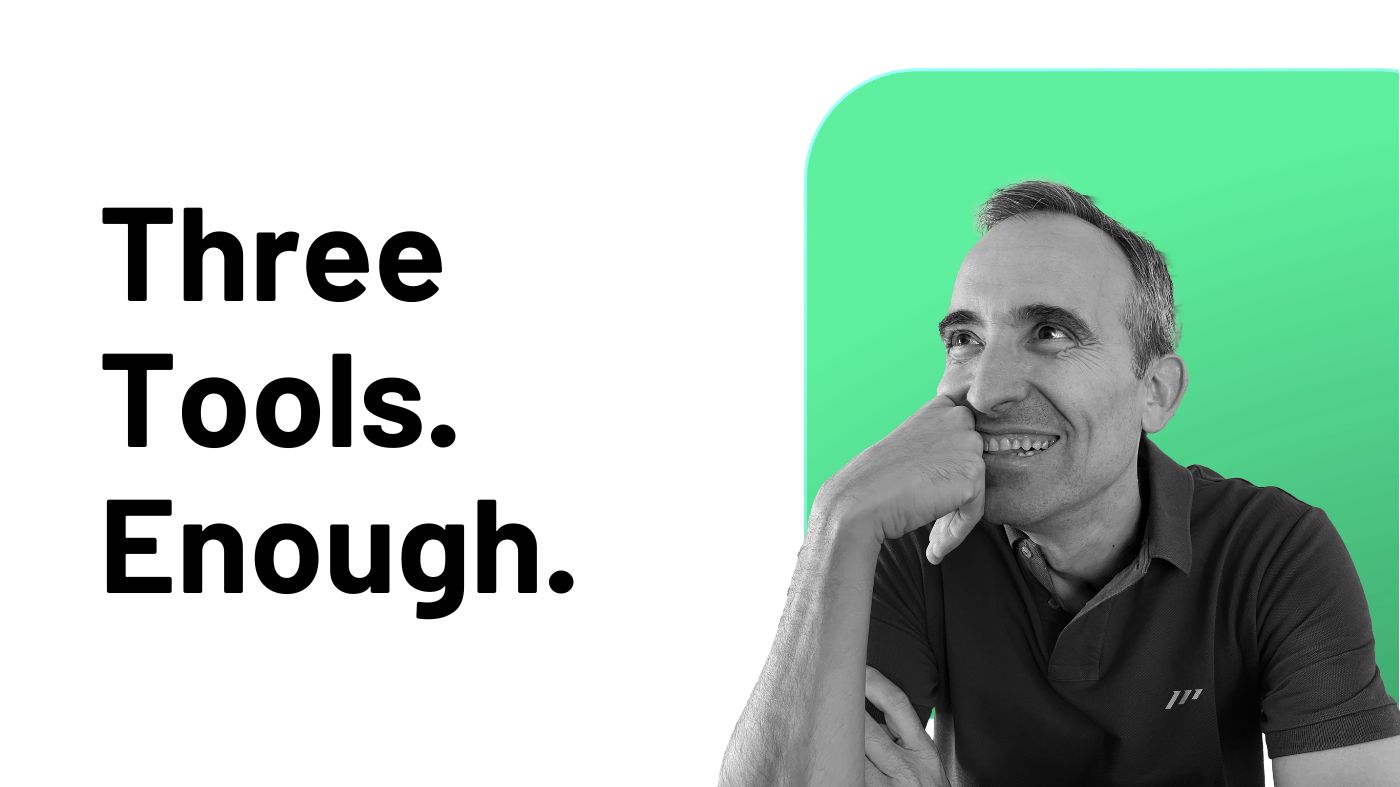You’ve got the tools. You’ve got the workflows. You’ve even color-coded your calendar.
Yet every Monday morning feels like stepping into quicksand. Tasks shifting, deadlines looming, and that gnawing sense that you’re always one step behind.
Here’s the brutal truth: You’re not failing because you lack the right tools. You’re failing because you’re thinking about productivity completely wrong.
Most busy professionals fall into what I call the “feature trap.”
They obsess over which tool has the best interface, the smartest AI, or the most integrations. They chase tools instead of building systems.
But here’s what separates high-performers from the perpetually overwhelmed: They focus on concepts, not features.
And nowhere is this more critical than with one seemingly simple concept that’s probably destroying your productivity right now: the Due Date.
What if I told you that the way you think about “Due Date” is not just wrong but actively sabotaging your ability to get things done?
What if there was a completely different approach that could transform your chaotic days into smooth, predictable execution?
That’s exactly what we’re going to uncover.
This isn’t about another productivity hack or a new tool recommendation. This is about fundamentally rewiring how you approach planning and execution.
Ready to see task management in a way that actually works for the reality of professional life?
The Due Date Delusion: Why Your Task Manager Is Working Against You
By definition, using your common sense, a Due Date is the specific day by which something must be completed, submitted, or paid. In the context of task management, that equals the date by which a task should be finished.
Sounds reasonable, right? That’s exactly the problem.
Picture this: It’s Sunday night, and you’re planning your week. You open your task manager and start assigning due dates. “Finish the quarterly report” gets Thursday. “Review marketing proposal” gets Tuesday. “Prepare client presentation” gets Friday. You feel organized, in control, like you’ve got this.
Fast forward to Tuesday afternoon. An urgent client call runs long. Your “Tuesday” task slides to Wednesday. Wednesday brings an unexpected team crisis. Now Thursday’s task is at risk. By Friday, you’re frantically moving dates around like puzzle pieces that don’t fit, and your beautiful plan has become a stress-inducing mess.
This is what most task management tools encourage with their Start Date and Due Date fields. They seduce you into the Gantt chart approach where you perfectly plan (on paper, because everything works on paper) the start and finish dates of your tasks.
“Time management is life management.” — Robin Sharma
Here’s the harsh reality: Your real professional life will quickly tell you you’re on the wrong path.
You’ll start dedicating more and more time to organizing your task management system instead of actually executing tasks. You suffer delays in your planned tasks, multiple unexpected ones arise, and suddenly you’re spending your evenings reorganizing tomorrow instead of relaxing.
Because that’s the reality of busy professionals who need a plan that’s flexible enough to survive every single day while still guaranteeing progress toward their goals.
The moment you bet on this feature-focused approach, you lose control. Every single day becomes a nightmare of constant replanning, shifting dates, and that sinking feeling that you’re always behind.
But what if the problem isn’t you? What if it’s the entire way we’ve been taught to think about due dates?
The Revolutionary Shift: How ICOR® Transforms Due Dates from Stress to Success
The system approach works in a completely different way.
It’s you who decides what makes sense for you and based on that, you see how you can implement that way of thinking, that combination of concepts and workflows you understand because it’s you who thought, designed, and created them, in a specific tool.
Here’s where everything changes: In ICOR®, a Due Date isn’t when something must be finished. A Due Date is the date you’ll dedicate time to a task, trying your best to complete it.
Read that again.
This isn’t just a psychological shift. It’s a complete transformation of how you approach task management because it forces you to actually plan instead of just hoping.
The old Due Date approach is setting aspirational dates when you’d like to finish tasks. “I hope to complete this by Thursday.” It’s wishful thinking disguised as planning.
“It takes as much energy to wish as it does to plan.” — Eleanor Roosevelt
The ICOR® approach forces real commitment.
When you set a Due Date as “the day I’ll work on this,” you’re making a concrete promise to yourself: “I will dedicate time to this task on Thursday.” You’re not hoping to finish; you’re committing to progress.
Let me show you what this looks like in practice.
Remember our Sunday planning scenario?
Instead of thinking “I must finish the quarterly report by Thursday,” you think “I will work on the quarterly report on Thursday.” You’re no longer setting yourself up for failure with completion pressure. You’re setting yourself up for success with dedication commitment.
With this ICOR® definition, the old Due Date becomes what we call the “Deadline of a task,” a simple attribute that tracks external requirements but isn’t attached to your planning and execution workflow.
Obviously, if you have an un-negotiable deadline, you need to be aware of it, but this has nothing to do with your daily planning process.
This approach creates immediate, practical consequences that transform how you work.
You can completely remove the Start Date field because you don’t need it anymore. You move away from the Gantt approach, which fails in today’s dynamic professional environment.
Now your task management system becomes a planning tool that works with reality instead of against it.
Here’s how the contrast plays out:
-
Old approach: You set aspirational completion dates, then scramble to reorganize when reality hits. It’s reactive management disguised as planning.
-
ICOR® approach: You commit to dedicated work time, then adjust that time when needed. It’s proactive planning that adapts to reality.
This mindset shift from deadline-driven panic to intention-based planning is just the beginning.
But knowing the concept isn’t enough.
You need a practical workflow to implement this new approach in your daily work. That’s where the real magic happens.
How Due Dates Become Your Superpower: The Two-Workflow Framework That Guarantees Success
Now that you understand the fundamental shift, let’s make it practical.
This new approach to Due Dates isn’t just theory. It becomes your competitive advantage through two simple workflows that transform chaos into control.
The first workflow is deceptively simple: always set a Due Date for any task you create.
This sounds obvious, but it’s revolutionary in practice.
Every task, no matter how small or large, gets a Due Date the moment you create it. Not someday. Not when you get around to it. Today.
Here’s why this works: When you force yourself to assign a Due Date (remember, this means “when I’ll work on it”), you’re forced to think about your actual capacity and priorities.
You can’t just dump tasks into a someday pile and hope they magically happen.
Think about it practically.
You’re in a meeting, and someone mentions updating the client onboarding process. Most people would create a task called “Update client onboarding” and let it sit in their task manager indefinitely.
With the ICOR® approach, you immediately ask yourself: “When will I actually dedicate time to this?” Maybe it’s next Tuesday. Maybe it’s two weeks from now. But you commit to a specific day, and that task now has a home in your planning.
This simple act eliminates what we call “someday/backlog graveyards.” Those endless lists of tasks that never get done because they’re never planned.
Always remember this: Anything that’s not planned and scheduled will never be done. Your reality will prevent you from working on them.
“Plan your work for today and every day, then work your plan.” — Margaret Thatcher
The second workflow is daily triage for effortless planning.
Every morning (or the night before), you run a quick triage of your planned tasks. This isn’t complex task or project management. It’s a simple, intuitive process.
Look at your today’s list of tasks and ask yourself:
“Can I realistically do all of these today?”
If yes, you’re done. Go execute.
If you’re not sure, go through your list and delay any tasks you don’t consider essential for today. Set new Due Dates for them. Tomorrow, next week, whenever makes sense. Then ask yourself again if today’s remaining list is realistic.
At the end of this workflow, you have a plan you actually believe in.
You’re not lying to yourself about your capacity.
You’re not setting yourself up for failure.
Let’s see this in action.
It’s Monday morning, and you have seven tasks planned:
-
One is urgent client feedback.
-
Another is a team meeting.
-
But you also have “research new software” and “organize digital files.”
After your triage, you realize the research can wait until Wednesday, and organizing files can happen Friday.
Now you have four realistic scheduled tasks.
The beauty?
When Wednesday arrives, that research task is already planned.
When Friday comes, file organization has its dedicated time.
Nothing falls through the cracks, but nothing overwhelms your day either.
This triage workflow typically takes 2-5 minutes but saves hours of stress and indecision throughout your day, week, month, quarter, year, and life.
You always know what you’re supposed to be working on because you’ve intentionally planned it.
But here’s where it gets even more powerful. These two workflows don’t just organize your tasks. They fundamentally change how you think about work, time, and commitment.
Beyond Daily Tasks: How This Framework Scales to Transform Your Entire Work Life
The real power of this approach becomes clear when you realize it’s not just about daily tasks. It’s a complete framework that transforms how you handle everything from weekly planning to strategic initiatives.
Take weekly planning, for example.
The exact same approach that works for daily triage works for planning your week. Every Monday, look at your plan for the week and ask: “Do all these tasks make sense for this week? Can I delay any of them to next week? Are all these tasks actually doable?”
When you delay things from this week to the next, don’t waste mental energy deciding what specific day next week. Just set the Due Date to next Monday and forget about it. You’re cleaning up your current week, not planning the next one. That’s focus.
“Those who plan do better than those who do not plan, even though they rarely stick to their plan.” — Winston Churchill
This same framework scales even further.
Want to plan your quarter? Set the projects you’d like to complete this quarter with the same approach. When some don’t fit the timeframe, delay them to the next quarter’s first week. The workflow remains identical whether you’re managing a single task or strategic business goals.
But here’s where it gets revolutionary: this approach works beyond just action management. You can apply it to your information system too.
Remember that important article you bookmarked six months ago that you “really want to read”? Or that crucial video for your business strategy that’s been sitting in your saved items forever?
Create a task in your system: “Read productivity article” or “Watch strategy video.” Assign it a Due Date. Now that information has a planned time to be consumed instead of living in digital purgatory.
This is how you make information actionable. It’s by scheduling consumption that you actually consume it.
The compound effect is extraordinary. Instead of having hundreds of scattered good intentions, you have organized commitments. Instead of feeling overwhelmed by everything you “should” do, you have clarity about what you “will” do and when.
Your New Reality: What Happens When You Stop Fighting Your Task Manager and Start Flowing With It
Picture this: It’s Monday morning, three months from now.
You open your task manager, and instead of that familiar knot in your stomach, you feel calm confidence. Your tasks aren’t threats looming over you. They’re commitments you’ve made to yourself, and you trust yourself to keep them.
When your colleague drops by with an “urgent” request, you don’t panic about disrupting your perfectly planned day. You simply look at your committed work time, assess the true urgency, and either adjust your schedule or negotiate a realistic timeline.
No guilt. No stress. Just clear decision-making.
Your evenings are yours again.
You’re not lying in bed thinking about everything you didn’t finish because there’s nothing you were supposed to finish. There were only things you committed to work on, and you honored those commitments.
You don’t need weekly reviews at all because your productivity system stays current through your daily triage. You’re not spending weekends reorganizing chaos. You’re living life because your professional productivity runs smoothly in the background.
This isn’t productivity fantasy. This is what happens when you stop fighting against the realities of professional life and start working with them.
The old approach treated your task manager like a wishful thinking machine.
The ICOR® approach transforms it into a commitment and execution engine.
One creates stress and disappointment. The other creates momentum and accomplishment.
The shift starts with a single decision: the next time you create a task, instead of setting a hopeful completion date, set an intentional work date. Ask yourself, “When will I actually dedicate time to this?” and commit to that answer.
Your task manager has been waiting to work with you instead of against you. It’s time to let it.




